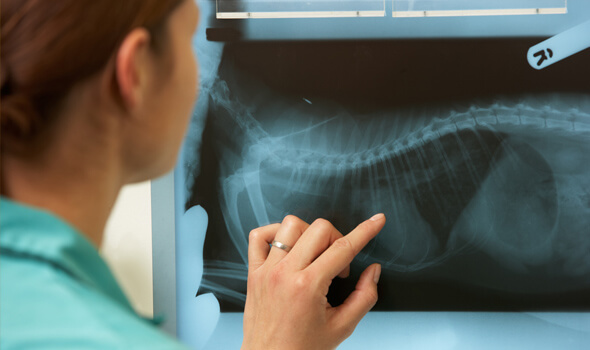
Our laboratory facilities host precise diagnostic equipment used in preventative care and early detection.
Electrocardiology (ECG)
Effective heart disease treatment begins with early detection. Electrocardiology is the best tool to analysis your pet’s heart health. An electrocardiogram is used to determine heart rate and rhythm, discovering any abnormalities in the process. Should an arrhythmia, or any other condition, be uncovered, treatment can commence.
An electrocardiography device detects minute electrical changes on the surface of your pet’s skin caused by heartbeat movement. Small electrodes called leads are covered in conducting gel and gently placed on the skin. The leads monitor heartbeat activity, recording irregularities if they are present. This process is non-invasive and painless.
Radiology
Veterinary diagnostic imaging creates composites of the internal body used to discover disease or injury. Littleton Veterinary Clinic employs advanced imaging technologies operated by board-certified veterinary radiologists, guaranteeing the highest quality of care for our patients.
Radiographs, or x-rays, use electromagnetic radiation directed towards the body to highlight objects within. These popular tests can detect a number of abnormalities including skeletal fractures, soft tissue damage, foreign bodies and dental disease. Radiography remains one of the most popular and accurate non-invasive diagnostic tools in the veterinary industry.
Littleton Veterinary Clinic Radiology Services
- Radiographs
- Ultrasounds
Some specialized procedures may require anesthesia. Orthopedic radiographs and contrast studies require the patient remain completely still to work correctly, necessitating sedation in most cases. The duration of sedation is usually short and patient recovery is swift. A board-certified anesthesiologist oversees all procedures.
